As society tackles the problem of feeding our expanding population safely and sustainably, a schism has arisen between scientists and consumers, motivated by fear and distrust. Food Evolution, narrated by Neil deGrasse Tyson, explores the polarized debate surrounding GMOs. Looking at the real-world application of food science in the past and present, the film argues for sound science and open-mindedness in a culture that increasingly shows resistance to both.
Related Movies

The Journey of Man: A Genetic Odyssey (2003)
Many geneticists and archaeologists have long surmised that human life began in Africa. Dr. Spencer Wells, one of a group of scientists studying the origin of human life, offers evidence and theories to support such a thesis in this PBS special. He claims that Africa was populated by only a few thousand people that some deserted their homeland in a conquest that has resulted in global domination.
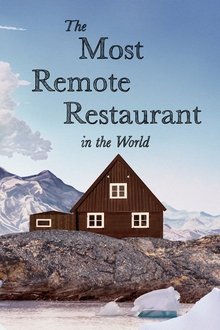
The Most Remote Restaurant in the World (2023)
The meals based on indigenous ingredients and sustainability at the forefront. Project managers are soon faced with problems ranging from sourcing ingredients to staffing a high-end restaurant in a location inhabited by only 53 people.

We Feed the World (2005)
A documentary that exposes the shocking truths behind industrial food production and food wastage, focusing on fishing, livestock and crop farming. A must-see for anyone interested in the true cost of the food on their plate.
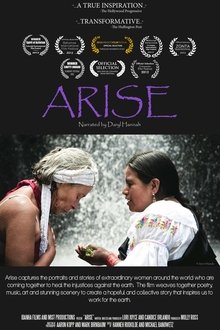
Arise (2013)
A film that captures the portraits and stories of extraordinary women around the world who are coming together to heal the injustices against the earth, weaves together poetry, music, art, and stunning scenery to create a hopeful and collective story that inspires us to work for the earth. The list of impassioned, indefatigable female environmental activists featured in this film includes Winona LaDuke, a Native American who has championed the use of solar and wind power on reservations; Theo Colborn, head of The Endocrine Disruption Exchange, who fights against toxic chemicals in our water supplies; Beverly Grant, who’s created a vibrant farmer’s market in a black neighborhood of Denver, Colo.; Dana Miller, who spearheads an “urban agriculture movement” in the same city; and Vandana Shiva, who champions organic farming in India.
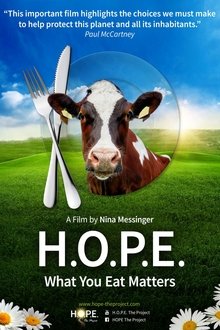
H.O.P.E.: What You Eat Matters (2016)
H.O.P.E. is a life-changing documentary uncovering and revealing the effects of our typical Western diet high in animal-based foods. It contrasts the limited interests of the pharmaceutical and agricultural industry with the all-encompassing interests of living beings on this planet and with the power of responsible consumer action. H.O.P.E. is an urgent call to action to all of us to commit to a change towards sustainability and safeguarding our living environment.
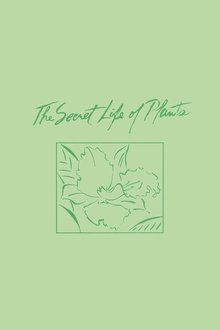
The Secret Life of Plants (1979)
A documentary about the study of plant sentience with original music by Stevie Wonder. Utilizing time-lapse photography, the film proposes that plants are able to experience emotions and communicate with the world around them.

An Inconvenient Truth (2006)
A documentary on Al Gore's campaign to make the issue of global warming a recognized problem worldwide.

Spiders on a Web (1900)
Consisting of a single shot, Spiders on a Web is one of the earliest British examples of close-up natural history photography. Made by one of the pioneers of the British film industry, G.A. Smith, this short film details spiders trapped in an enclosure, and despite the title, does not actually feature a web.
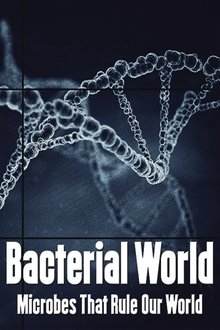
Bacterial World (2016)
Coming in all shapes and sizes, bacteria are present in every corner of the Earth. Their purposes and types are even more diverse, with only 1% being truly harmful. Dive into the world of Bacteria to experience the latest discoveries and scientific knowledge surrounding these plentiful and necessary microbes.

Seeds of Death: Unveiling the Lies of GMOs (2012)
This documentary exposes the massive public health dangers of genetically modified organisms (GMOs). The film features the world's leading scientists, physicians, professors, politicians, attorneys, and environmental activists who reveal the frightening truth surrounding the vast use of GMOs in our food supply. You'll see the deception and deep layers of corruption being perpetuated against the public at large by the world's largest and most powerful biotechnology companies, chemical companies, agricultural companies, and governments.
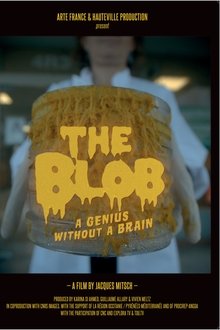
The Blob: A Genius without a Brain (2019)
This documentary outlines the unique properties and latest studies of "Physarum Polycephalum", also known as Blob.
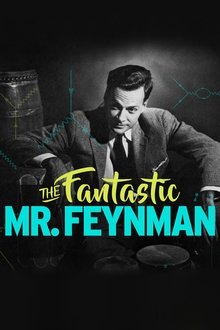
The Fantastic Mr Feynman (2013)
Richard Feynman is one of the most iconic, influential and inspiring scientists of the 20th century. He helped design the atomic bomb, solved the mystery of the Challenger Shuttle catastrophe and won a Nobel Prize. Now, 25 years after his death - in his own words and those of his friends and family - this is the story of the most captivating communicator in the history of science.
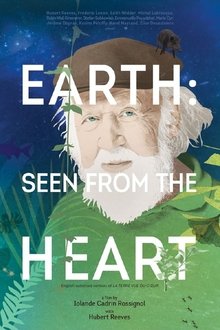
Earth: Seen From The Heart (2018)
For more than twenty years, Hubert Reeves has put science, his media influence, and his energy at the service of a cause: biodiversity.

Fragile Harvest (1986)
How safe is the future of the world’s food? This documentary explores a growing crisis in world agriculture. Plant breeding has created today’s crops, which are high yielding but vulnerable to disease and insects. To keep crops healthy, breeders tap all the genetic diversity of the world’s food plants. But that rich resource is quickly being wiped out. (NFB)

Mission to Mir (1997)
This film shows how far we have come since the cold-war days of the 50s and 60s. Back then the Russians were our "enemies". And to them the Americans were their "enemies" who couldn't be trusted. Somewhere in all this a young girl in Oklahoma named Shannon set her sights on becoming one of those space explorers, even though she was told "girls can't do that." But she did.

Pyramid (2002)
Of the Seven Wonders of the Ancient World, the Pyramid is the only one to survive. Many believe that even with our 21st-century technology, we could not build anything like it today. Based on the most up-to-date research and the latest archaeological discoveries, here is how the Pyramid came to be.

Heaven and Earth and Joe Davis (2011)
Filmmaker Peter Sasowsky examines the life and work of artist Joe Davis
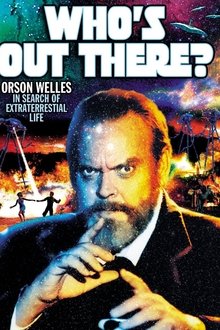
Who's Out There? (1975)
Orson Welles — with contributions from scientists George Wald, Carl Sagan, and others — examines the possibility and implications of extraterrestrial life. In examining our perceptions of alien 'martians' from his "War of the Worlds" broadcast, to then-modern explorations of Mars, this film from NASA provides a unique glimpse at life on earth, and elsewhere in the universe.

Heat Pumps: Are They Really Worth It? (2025)
Britain is undergoing a domestic heating revolution - heat pumps are replacing gas boilers and apparently everyone should prepare to put one in their homes. Alexis Conran investigates whether these devices live up to the hype, examining the pros and cons to help consumers choose the best option. Plus, tips on maximising savings.